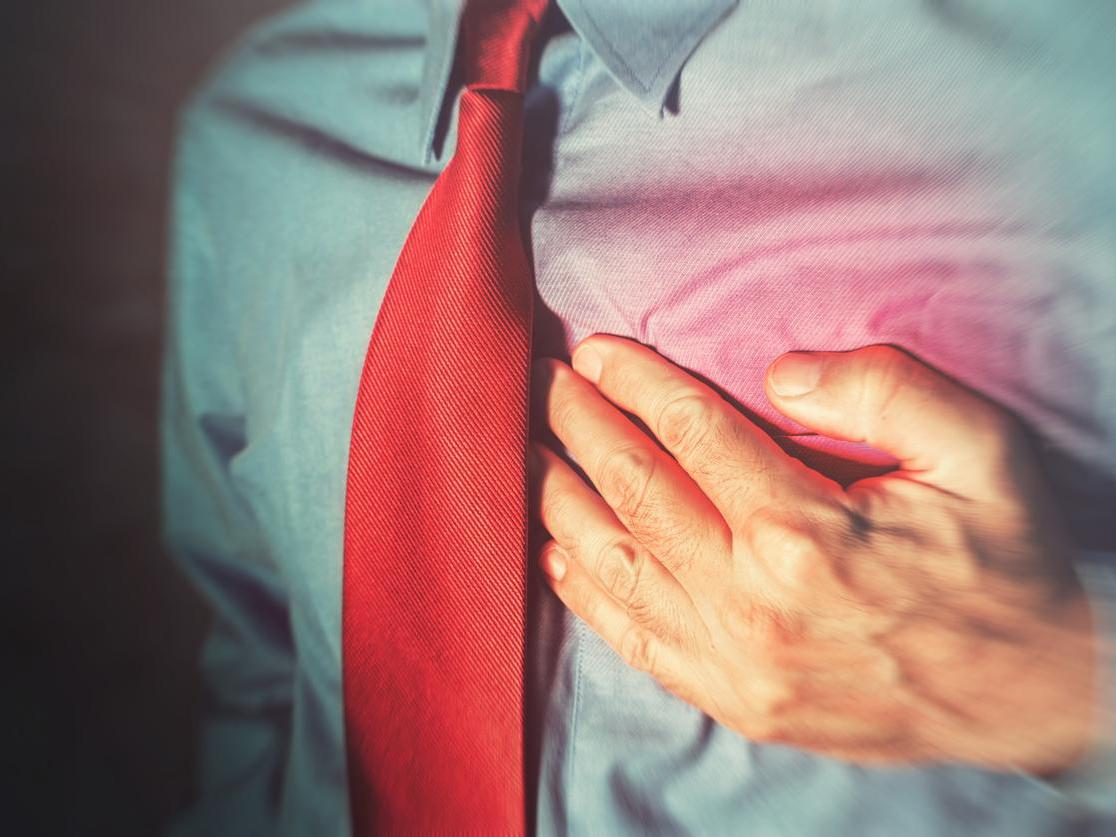Cholesterol crystals are a sign heart attack is imminent, finds new study
The symptom was found in 89 per cent of A&E cases

Scientists have discovered a new symptom that could be a sign that a heart attack is imminent.
After examining materials that were blocking the coronary arteries of a number of patients, a team of scientists and medical experts at Michigan State University confirmed that it was cholesterol - in the form of crystals.
They found that this particular type of hardened cholesterol was found in over 89 per cent of emergency room cases.
“In previous studies, we showed that when cholesterol goes from a liquid to a solid, or crystal state, it expands in volume like ice and water,” said Dr George Abela, professor of medicine at Michigan State University.
“This expansion inside the wall of the artery can tear it and block blood flow causing a heart attack or stroke.”
By examining patients in more than 240 emergency rooms across the US, once a heart attack patient was admitted the team would suction out the crystals and examine their size and hardness.
They discovered that the large clusters of crystals had managed to break through the plaque and walls of the arteries, even entering the heart itself.
As well causing physical damage by tearing through the arteries, the scientists were also able to confirm that these crystals activated the production of inflammation molecules called Interleukin-1 beta, which can inflame and aggravate arteries.
Now, as well as having a better understanding of a key symptom before a heart attack, this research also reinforces the notion that plenty of exercise and good dietary choices have a proven ability to reduce the formation of these crystals in the first place.
According to the NHS, other symptoms of heart attack can include chest pain which radiates from the best to the jaw, neck, arms and back, shortness of breath, feeling weak or lightheaded and an overwhelming feeling of anxiety.
Join our commenting forum
Join thought-provoking conversations, follow other Independent readers and see their replies
Comments
Bookmark popover
Removed from bookmarks